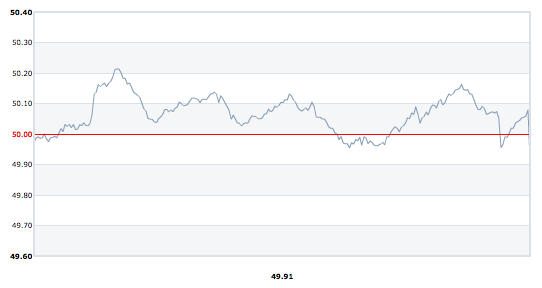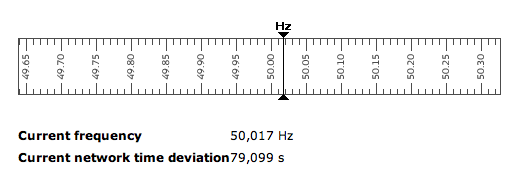This post on hackaday links to this interesting article where someone investigates the accuracy of 60Hz mains frequency over time, I hope it might help.
One thing it shows for certain is that the AC line is definitely not
a steady frequency, but it varies over time. It also shows that the
frequency seems to flutter a lot more abruptly during peak hours of
the day. At night, it changes much more slowly.
As a possible explanation, I've heard that electric utility companies
know that many customers depend on that 60Hz to keep their clocks
going accurately, but it's difficult to keep the 60Hz exact when
energy demand is fluctuating rapidly.
As a solution, they will adjust the frequency slightly during off-peak
hours to compensate for any mishaps during the day.
The conclusion seems to be that the frequency probably averages out quite accurately, but will fluctuate depending on the time of day, as a result of the load on the network.
There's some interesting links at the bottom of the article to further reading and experiments. I also seem to remember another article posted via hackaday which also looked at the same topic, but I can't seem to find it now.


